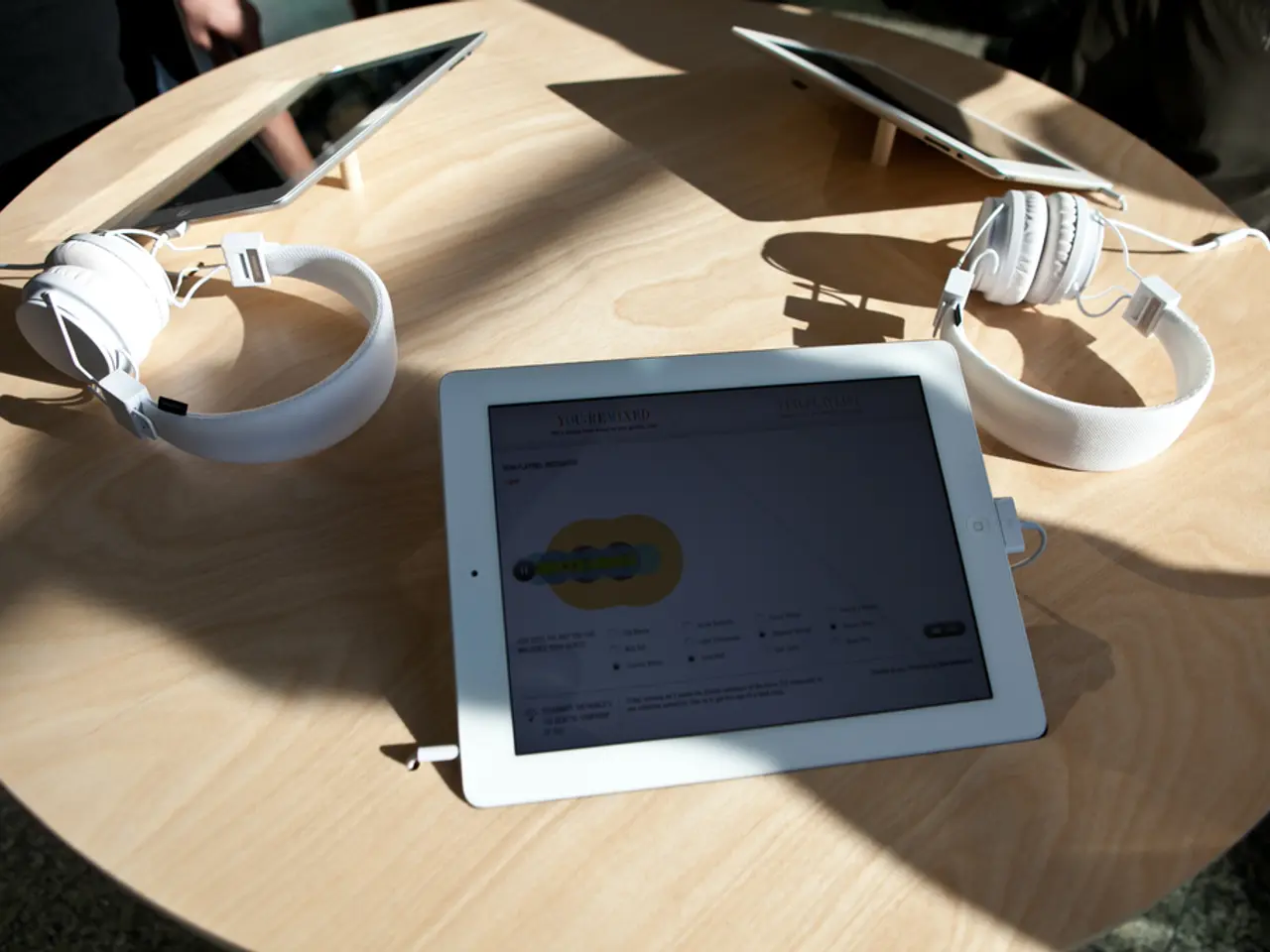AI Phone Launch by Telekom: Rival Companies Shift Focus Elsewhere
Deutsche Telekom has made a bold move in the smartphone market by introducing a new device that prioritizes AI integration and affordability. The AI phone, which costs just 149 euros, stands out for its unique interface that replaces visible apps with an AI-powered voice assistant from Perplexity AI.
The smartphone, manufactured by a company in Vietnam, removes the need for traditional app icons and interfaces, offering a streamlined user experience. While apps still run in the background, users can interact solely via the voice assistant. This design is aimed at providing compact AI service access, particularly for those less familiar with AI technology.
In comparison, established brands like Samsung and Apple offer partial AI integration but maintain traditional app visibility. Samsung's Galaxy AI and Apple's Apple Intelligence use AI assistants to enhance app usage and simplify interaction, but they retain their traditional interfaces.
Other smartphones that feature unique AI-driven or privacy-focused interfaces include the HMD Fuse, designed with child safety in mind, and the privacy-first UP Phone. However, none completely eliminate visible apps in favor of a purely voice-driven AI interface as Telekom’s device does.
The HMD Fuse emphasizes safety by blocking inappropriate content with AI harm-blocking technology and offers strong parental controls. It retains visible apps but manages them strictly for online safety reasons. On the other hand, the UP Phone prioritizes privacy with hardware kill-switches, VPN, and firewall blocking third-party data tracking. It features a revamped user interface but does not remove visible apps; instead, it controls data access aggressively.
During the presentation of the AI phone, the AI assistant struggled with understanding questions due to the challenging acoustics in the exhibition hall. A response promoting helicopter tours instead of tapas bars demonstrated this challenge.
Deutsche Telekom's focus on AI extends beyond the smartphone itself. O2, a subsidiary of Deutsche Telekom, is emphasizing the use of AI expertise in the mobile network. Vodafone Germany's management, meanwhile, has highlighted partnerships with Google, Microsoft, and other smartphone and AI technology providers. However, Vodafone, O2, and 1&1 do not engage in in-house AI phone developments.
In conclusion, Deutsche Telekom's AI phone offers a fresh approach in the smartphone market by integrating AI as the primary interface, replacing visible apps to simplify usage. While established brands like Samsung and Apple offer partial AI integration, this new device stands out for its affordability and ease of access to various AI services.
Read also:
- Global Gaming Company, LINEUP Games, Moves Into Extensive Global Web3 Multi-Platform Gaming Network
- Rebuilding Obstacles: The Complexities of Revamping: Part 2
- Musk initiates legal action against Apple over exclusion from App Store dispute
- Battle between Streaming Platforms and Gaming for Californian Entertainment: Which Offers the Best Budget-Friendly Option?







